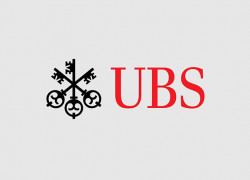UBS introduces framework to size and seize the AI investment opportunity
UBS Global Wealth Management’s (GWM) new Chief Investment Office (CIO) report takes a closer look at how the launch of generative Artificial Intelligence (AI) has started a major investment boom. Over the next decades, the companies that provide and adopt AI are expected to be at the core of economic growth and wealth creation. The report presents a value chain led investment framework to identify AI opportunities; shed light on how AI works; highlight its implications for the global economy, sustainable development, and individual sectors.
The launch of ChatGPT marked a watershed moment for AI and its adoption, and the range of problems that AI can address keeps growing at a quick pace. In its new report Artificial intelligence: Sizing and seizing the investment opportunity, UBS GWM’s CIO outlines a value chain led framework for the investable AI universe, describing the value creation in the AI industry from a bottom-up perspective.
According to the report, the fortunes of different parts of the value chain are likely to vary even in a fastgrowing industry, due to rapid innovation, evolving competitive dynamics and shifts in investor sentiment. It identifies three layers that power each other vertically:
- Enabling layer: The companies that provide the backbone for AI development, ranging from semiconductor production to chip design, cloud and data centers, and companies involved in power supply. By 2027 value creation is expected to amount to USD 185 billion.
- Intelligence layer: The companies turning the computing and energy resources from the enabling layer into intelligence, e.g. those developing large language models and those that own data assets that can be turned into intelligence. Given the small base, this layer will likely show the strongest growth into 2027.
- Application layer: The companies which embed the tools from the intelligence layer into specific use cases. This layer likely offers the largest monetization potential over time, yet this opportunity is difficult to quantify at this early stage. Presently, the report expects a directly addressable market of USD 395 billion in revenue opportunities for the application layer by 2027.
The economic value creation by layer provides important information because each layer has to create enough economic value to justify the costs of the preceding layer. One of the key ratios to watch is therefore the ratio of monetization potential of the application layer to the costs of the enabling and intelligence layers. This will likely become a key metric for investment returns.
AI’s impact on sectors and sustainable development
Although AI should have a neutral to positive impact on corporate topline and operating margins for most sectors, the report finds that pricing power may suffer for several industries if AI has a deflationary impact on product and prices. Certain industries are used to technological disruption, but for others, AI will create a bigger challenge and companies must adapt their business models fast to stay competitive in the market. Many of these AI-led changes could also have an implication on sustainable development, as the technology enables society to use resources more efficiently and to deliver much needed products and services to remote and/or underserved communities.
How to invest in the future of AI today
The artificial intelligence market potential is vast. The report estimates that AI value creation could amount to almost USD 1.2 trillion by 2027 and it presents four key considerations for investors to seize this investment opportunity:
- Be sufficiently invested. Many investors have built at least some exposure to AI over recent months. Yet, the sheer pace of growth in the industry means that many investors remain under-allocated overall.
- Tilt toward the enabling layer. While there is a risk that fears about overcapacity in the enabling layer could trigger volatility, based on the report’s findings the segment currently offers the best mix of attractive and visible earnings growth profiles, strong competitive positioning, reinvestment runway, and reasonable valuations.
- Mega-caps are core to the AI story. The AI rush so far has seen the largest tech firms benefitting the most. A feature rather than a bug of the new AI investment landscape, as the report expects the AI market to be dominated by an oligopoly of vertically integrated “foundries” and monolithic players along the value chain.
- It’s not only about the US. China’s tech monoliths are still trading at similar valuations as they were prior to the launch of ChatGPT. Yet, they are also investing heavily in AI. Ultimately, China is expected to develop an AI ecosystem that is distinct from much of the rest of the world, which should lead to significant monetization potential.
Communiqués liés
UBS introduit un cadre pour évaluer et pour saisir l'opport...
La nouvelle étude du Chief Investment Office (CIO) d'UBS Global Wealth Manageme...
UBS completes merger of UBS AG and Credit Suisse AG
UBS Group AG announces today that it has completed the merger of UBS AG and Cred...
Immobilier de luxe en Suisse – Cela ne marche pas tout seu...
En 2023, le segment du luxe n’a pas été épargné par la hausse des taux d�...
Christian Borner nommé Country Head d’UBS Luxembourg
Christian Borner a été nommé Country Head d’UBS Luxembourg lors du passage ...
UBS publie ses résultats pour le 4T23 et l’exercice 2023 ...
Elle veut proposer un dividende par action de 0,70 USD (+27% sur un an) et repre...
Bloom or bust? Unlocking transition finance to reduce biodiv...
Biodiversity is important for the climate and the economy with c. 60% of global ...
Il n'y a aucun résultat pour votre recherche






